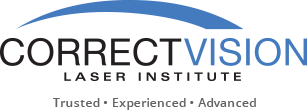What to Know About Light Sensitivity or Photophobia
Sensitivity to light, also known as photophobia, is a condition in which bright light causes discomfort or pain. You experience this to some degree when going from a dark room to a sunlit area or when a flashlight is accidentally shined into your eyes. However, not all cases of light sensitivity are benign.
“Afraid” of Light?
Although “phobia” suggests an actual fear of light, people with a sensitivity to light actually experience some degree of intolerance. This goes beyond the usual minor sensitivities occurring when your eyes adjust to changes in brightness.
Being sensitive to light isn’t a standalone disease of the eye. Instead, it indicates a problem either with eye health or in another system of the body. In the case of more widespread diseases, the sensitivity will often be accompanied by other signs and symptoms.
Photophobia Causes
Healthy eyes provide a clear path for light to go through both the cornea and the lens to the back of the eye. Light interacts with rod and cone cells in the retina, and signals sent to the brain through the optic nerve allow you to see objects in detail. If any part of this process is interrupted, photosensitivity can occur. People with light eye color are more likely to be sensitive to brightness due to a low concentration of protective eye pigmentation.
Other underlying causes may include:
• Color deficiency
• Conjunctivitis
• Corneal abrasion
• Corneal ulcer
• Direct eye injury
• Dry eye
• Foreign object stuck in the eye
• Hyphema
• Medication side effects
• Migraine
• Scleritis
• Uveitis
Some light sensitivity may indicate a more severe underlying condition requiring immediate medical attention such as meningitis, encephalitis and subarachnoid hemorrhage. It is doubtful that you have any of these conditions but if you are experiencing severe photophobia, please consult a doctor immediately.
Dealing with Light Sensitivity
Common treatments for photosensitivity tend to address the symptoms rather than the underlying cause of the problem. You can wear sunglasses to block bright outdoor and indoor light, and research is being conducted to develop special tinted glasses designed to block the most bothersome light frequencies. Temporary sensitivity from problems such as migraines can be relieved by lying down in a dark room until the discomfort passes.
Ignoring a persistent vision problem could lead to long-term damage or leave a potentially harmful condition untreated. Depending on what’s causing your sensitivity, you could need antibiotics, anti-inflammatory medications or even surgery to treat it. If you develop photophobia suddenly despite a good eye care regimen, make an appointment with your eye doctor. During the appointment, he or she will ask about your symptoms and perform a thorough exam to check for potential causes and get you on track with proper treatment.
Taking care of your eyes on a regular basis reduces the risk of damage and can help prevent issues with light sensitivity. Proper diet, UV-blocking sunglasses and regular eye exams are all part of a smart eye care regimen. If you have a family history of vision problems, talk with your eye doctor about additional measures you could be taking to preserve eye health.
Want to more about photophobia and light sensitivity?
CorrectVision Laser Institute is one of Florida’s most advanced practices for vision impairments with extensive experience in LASIK. Our goal is to open your eyes to the world of great vision by offering unparalleled expertise and the most advanced technology available.
Contact us today for a consultation with one of our South Florida eye specialists, located in Hollywood, Weston and Pembroke Pines!


